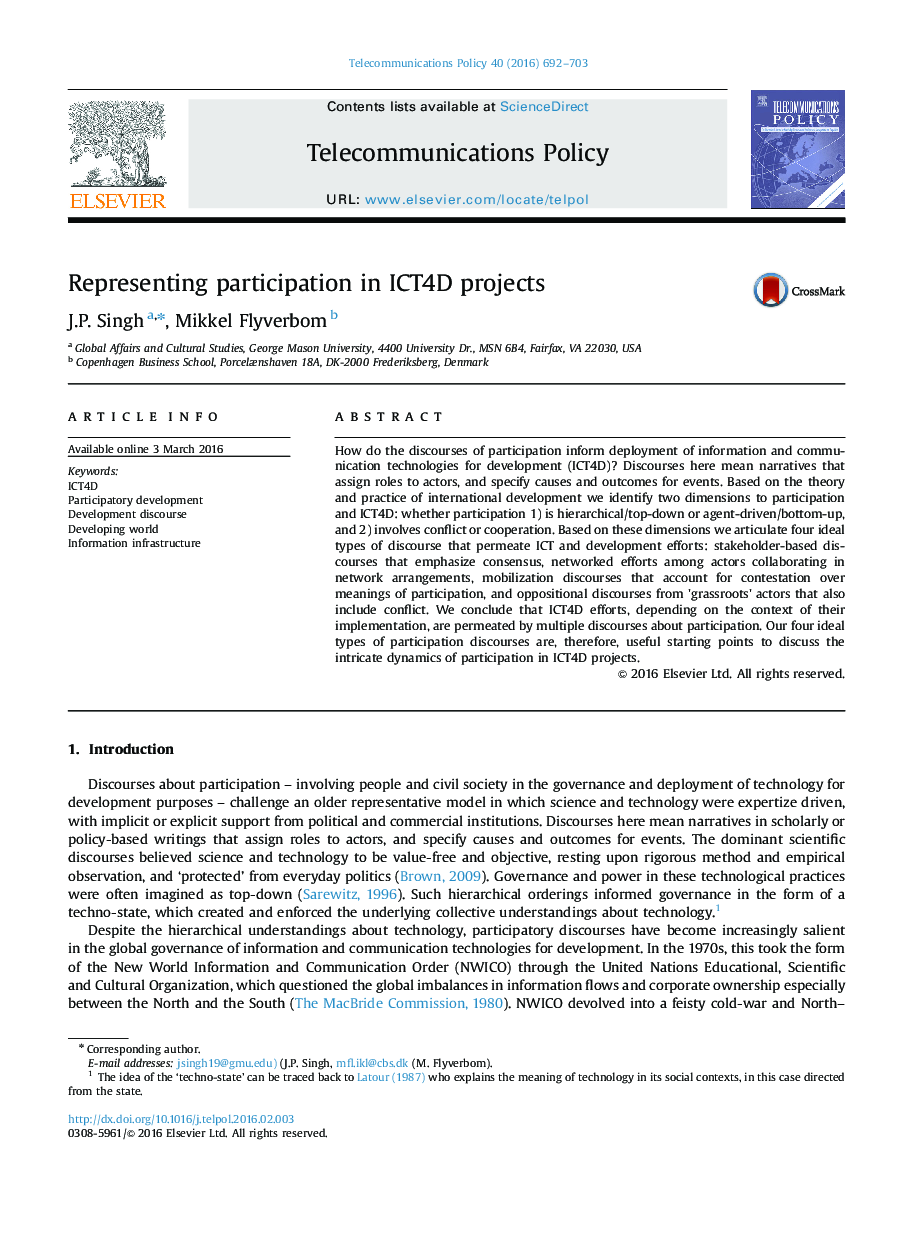| Article ID | Journal | Published Year | Pages | File Type |
|---|---|---|---|---|
| 557218 | Telecommunications Policy | 2016 | 12 Pages |
•Presents four narratives common to ICT4D.•Narratives assign participatory role to actors and examine causes of events.•Analyzes implications of these narratives for information policies and infrastructures.•Posits multiple and intersecting visions for development.
How do the discourses of participation inform deployment of information and communication technologies for development (ICT4D)? Discourses here mean narratives that assign roles to actors, and specify causes and outcomes for events. Based on the theory and practice of international development we identify two dimensions to participation and ICT4D: whether participation 1) is hierarchical/top-down or agent-driven/bottom-up, and 2) involves conflict or cooperation. Based on these dimensions we articulate four ideal types of discourse that permeate ICT and development efforts: stakeholder-based discourses that emphasize consensus, networked efforts among actors collaborating in network arrangements, mobilization discourses that account for contestation over meanings of participation, and oppositional discourses from ׳grassroots׳ actors that also include conflict. We conclude that ICT4D efforts, depending on the context of their implementation, are permeated by multiple discourses about participation. Our four ideal types of participation discourses are, therefore, useful starting points to discuss the intricate dynamics of participation in ICT4D projects.
